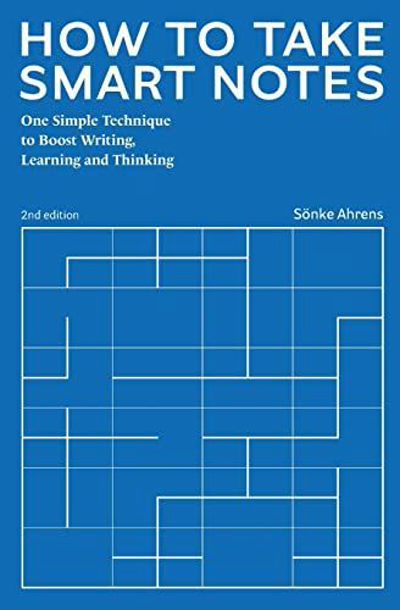
The book is based on the story of Niklas Luhmann, maybe the most important social theorist of the last century. Over his life, Luhmman collected more than 90,000 notes and attributed his productivity (30+ published books and even more publications!) to his note-taking system.
The Luhmman’s system (called Zettelkasten in German or Slip Box in English) is something every nonfiction reader or writer must be familiar with. It’s not an archiving tool but a tool to generate ideas and develop profound insights. The system has often been adapted like the Notecard system by Ryan Holiday. Luhmamm himself described his system but like any new life-changing habit, it’s never easy to get started.
I found How to Take Smart Notes a great addition to the subject. The superpower of note-taking has never been as approachable. This book will provide you with all the background information to understand the what, the why, and the how. It will stay a long time on my list of the books I recommended the most.
But the book is not perfect. I found the title misleading, the content insufficiently organized, and sometimes too repetitive, but always interesting! The book is a great example of the kind of book you can write using this system, turning existing ideas into new insights to create something unique.
If you read non-fiction books, you must read this book. If you take notes, you must read this book. If you write articles, even occasionally, you must read this book. Do not wait for ideas to pop up. Creativity is a process. The book contains many answers to demystify it. Don’t let your notes end up in a graveyard for thoughts.
As a side note, I love how the book focuses on principles, not tools. “Tools are only as good as your ability to work with them,” says the author. And even if the author mentions a few tools that he uses, you will have no trouble adapting these principles to other tools. As a developer, I agree digital tools can help (at least for durability) but I’m afraid we still haven’t found a clear winner. The software Zettelkasten used by the author is free and open source, but contributions are limited. Putting our notes in an application when we know any tool will become obsolete someday is the main obstacle you will face before applying the lessons of this book.
